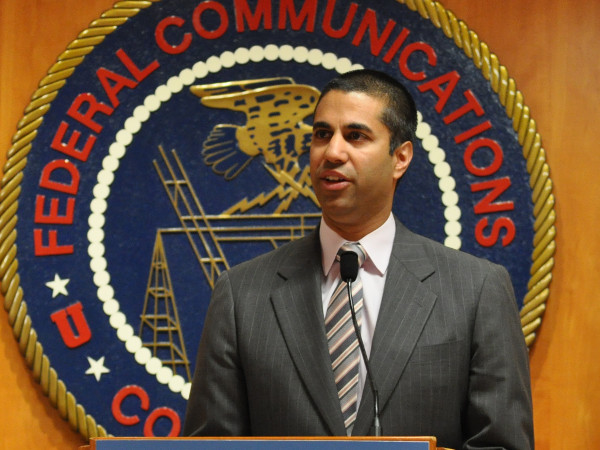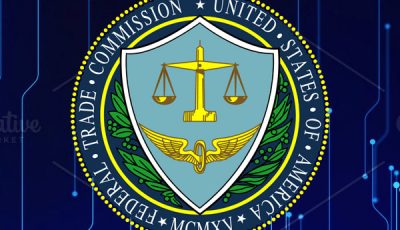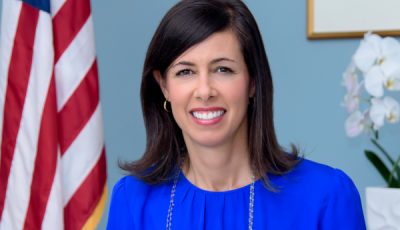FCC Draft Order Takes a Hatchet to Net Neutrality
 WASHINGTON – The internet as we know is about to experience a seismic shift. U.S. Federal Communications Commission Chairman Ajit Pai on Tuesday circulated a draft order ending net neutrality. The commission is expected to approve the order next month.
WASHINGTON – The internet as we know is about to experience a seismic shift. U.S. Federal Communications Commission Chairman Ajit Pai on Tuesday circulated a draft order ending net neutrality. The commission is expected to approve the order next month.
Net neutrality has been the U.S. government’s official position about the World Wide Web since 2015, when responsibility for regulating internet service providers was transferred to the FCC from the Federal Trade Commission. The change reclassified internet service providers from public utilities to common carriers, which are heavily regulated because they play an essential role in the daily lives of almost all Americans. The government agencies made the handoff primarily to keep ISPs from acting on suggestions they might prioritize web traffic based on a content provider’s ability to pay a premium rate for an “internet fast lane” that would provide a competitive edge.
After reclassifying ISPs, the FCC adopted the Open Internet Order, a set of regulations approved in 2015 that prohibit ISPs from blocking, slowing or otherwise discriminating against websites and online services. It also prevents ISPs from charging consumers more for access to certain kinds of content and prohibits them from favoring their own content over that provided by competitors. The order is at the heart of net neutrality, and it’s what Pai wants to rescind. He proposes to deregulate ISPs and let “market forces” determine how the internet works.
“We should simply set rules of the road that let companies of all kinds in every sector compete and let consumers decide who wins and loses,” he told told Reuters.
Pai is a Republican and a former staff attorney for Verizon, a large ISP that mounted a court challenge to net neutrality regulations in 2010. Since President Donald Trump appointed Pai to head the FCC in January, one of Pai’s primary goals has been to jettison net neutrality regulations. With a slim Republican majority on the commission — three Republicans and two Democrats — Pai is almost certain to have his way.
Pai’s draft order not only prevents the federal government from regulating ISPs, but also prohibits state and local governments from acting to do so. The move seems like extreme federal overreach, especially coming from a man who decries what he believes was federal overreach in creating the Open Internet Order in the first place.
AT&T, Comcast and Verizon, all major ISPs, support Pai’s plan, saying a “pay-to-play” scheme for prioritizing internet traffic will result in billions of dollars in broadband infrastructure investment. The Internet Association, a trade group representing companies including Google parent company Alphabet and Facebook, opposes Pai’s agenda.
“This proposal undoes nearly two decades of bipartisan agreement on baseline net neutrality principles that protect Americans’ ability to access the entire internet,” the association said in a statement. The move “represents the end of net neutrality as we know it and defies the will of millions of Americans.”
The latter statement is true. During the required public comment period ahead of a previous vote about whether to proceed with rescinding net neutrality, the FCC received more than one million comments. Of those, 97 percent supported retaining the Open Internet Order, according to data scientist Jeffrey Fossett, who analyzed the submissions (which are public record). A poll co-sponsored by cable and internet industry trade association NCTA indicated the vast majority of Americans support net neutrality. Only 18 percent of the 2,194 registered voters polled supported rescinding the Open Internet Order.
Jessica Rosenworcel, one of two Democratic FCC commissioners, stands with the majority of the American public.
“Following actions earlier this year to erase consumer privacy protections, the Commission now wants to wipe out court-tested rules and a decade’s work in order to favor cable and telephone companies,” she said in a prepared statement. “This is ridiculous and offensive to the millions of Americans who use the Internet every day.
“Our Internet economy is the envy of the world because it is open to all,” Rosenworcel continued. “This proposal tears at the foundation of that openness. It hands broadband providers the power to decide what voices to amplify, which sites we can visit, what connections we can make, and what communities we create. It throttles access, stalls opportunity, and censors content. It would be a big blunder for a slim majority of the FCC to approve these rules and saddle every Internet user with the cruel consequences.”
U.S. House of Representatives Democratic leader Nancy Pelosi vehemently opposes doing away with net neutrality, saying Pai’s draft order would hurt consumers, chill competition and stifle startups.
The FCC “has launched an all-out assault on the entrepreneurship, innovation and competition at the heart of the internet,” she said.
Even some Republicans aren’t entirely convinced Pai is acting in the public’s best interest. Sen. John Thune (R-S.D.) said although he believes Pai’s plan is in some ways better than the regulations enacted under President Barack Obama, “the only way to create long-term certainty for the internet ecosystem is for Congress to pass a bipartisan law.”
Pai’s final order will be made public Wednesday. The commission plans to vote on the matter Dec. 14.
YNOT’s analysis of why net neutrality matters to the adult entertainment industry is here.
Image: FCC Chairman Ajit Pai addresses the commission’s E-Rate Modernization Workshop. FCC photo, public domain.












